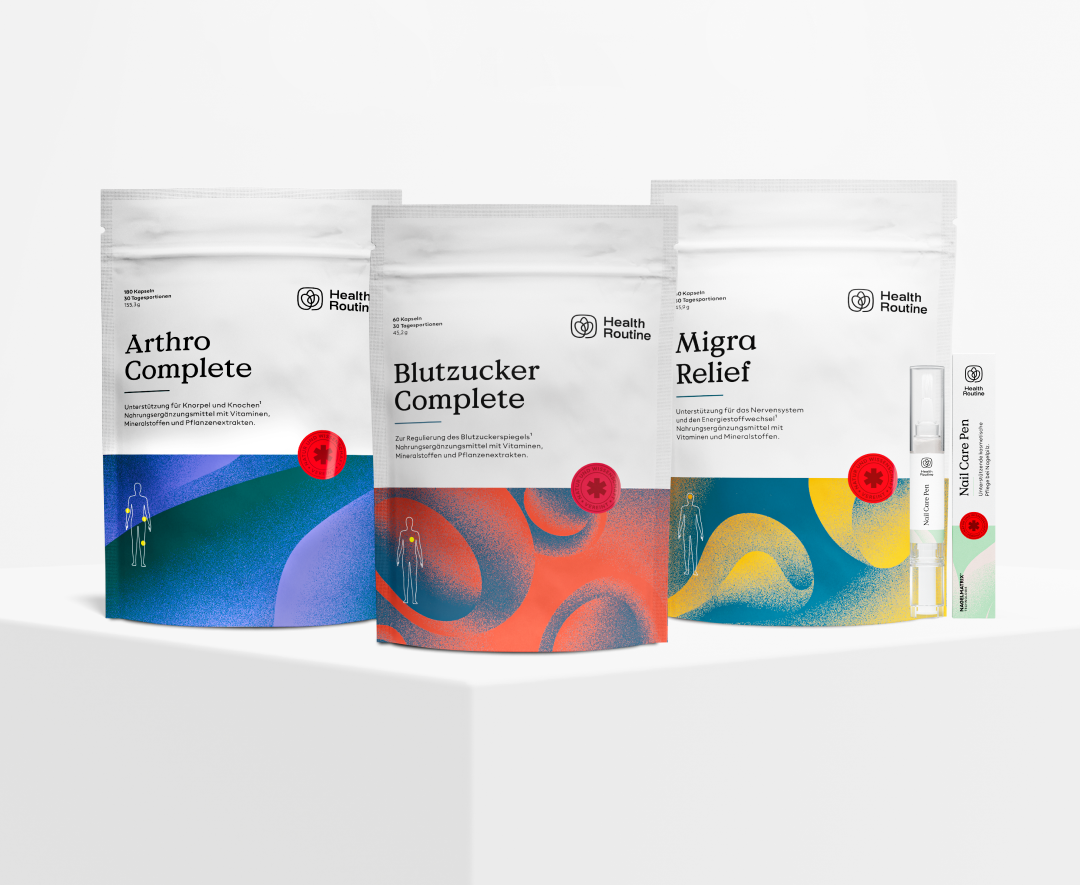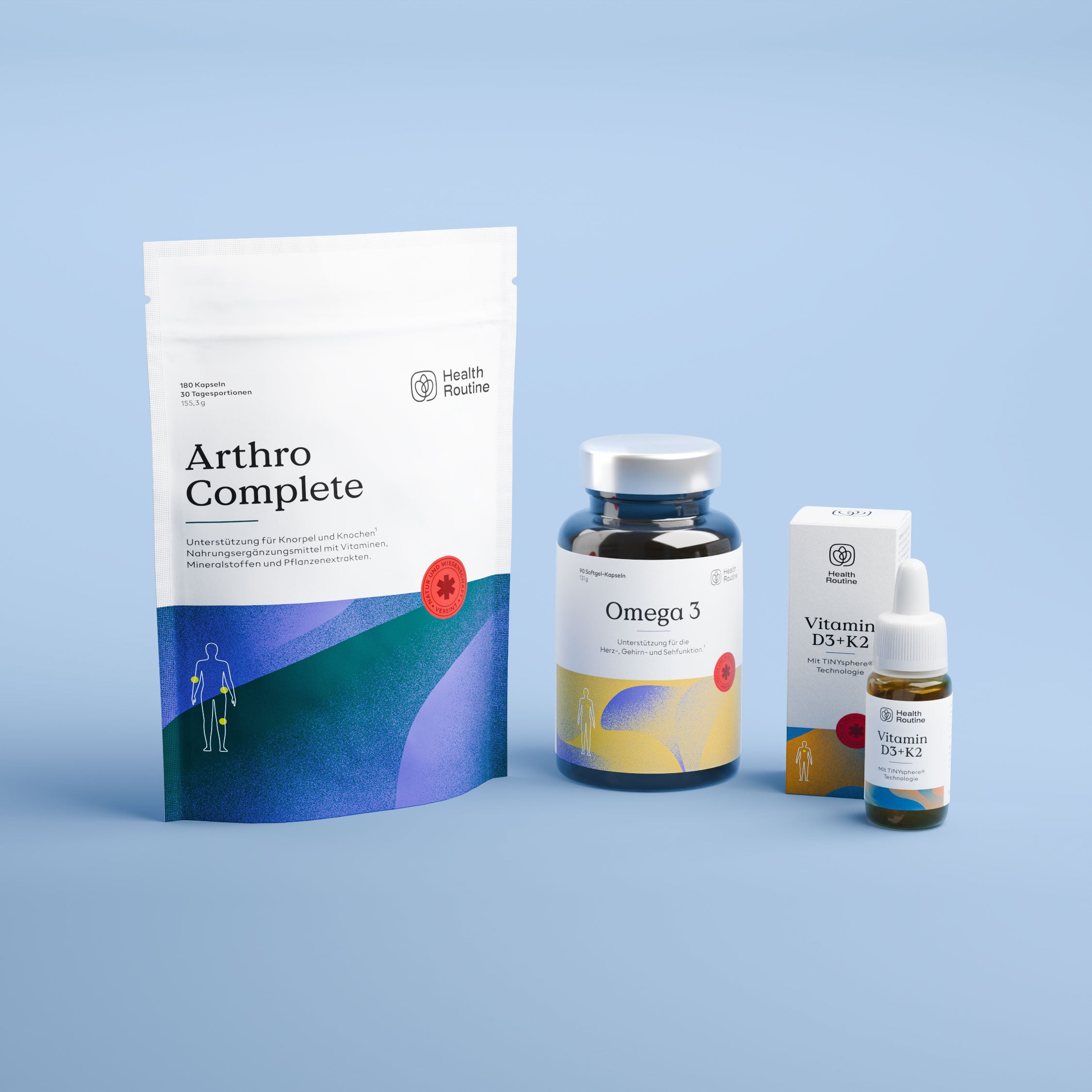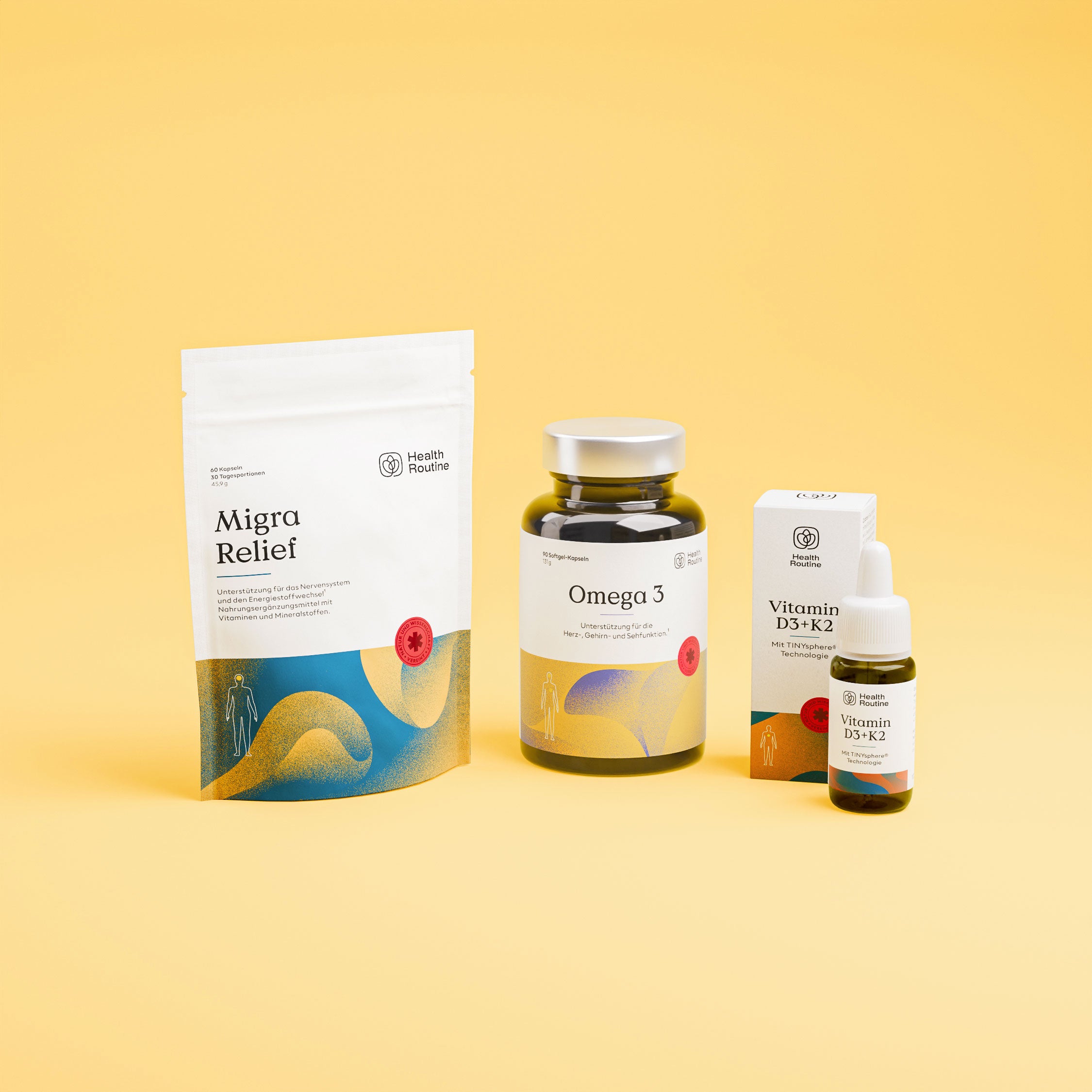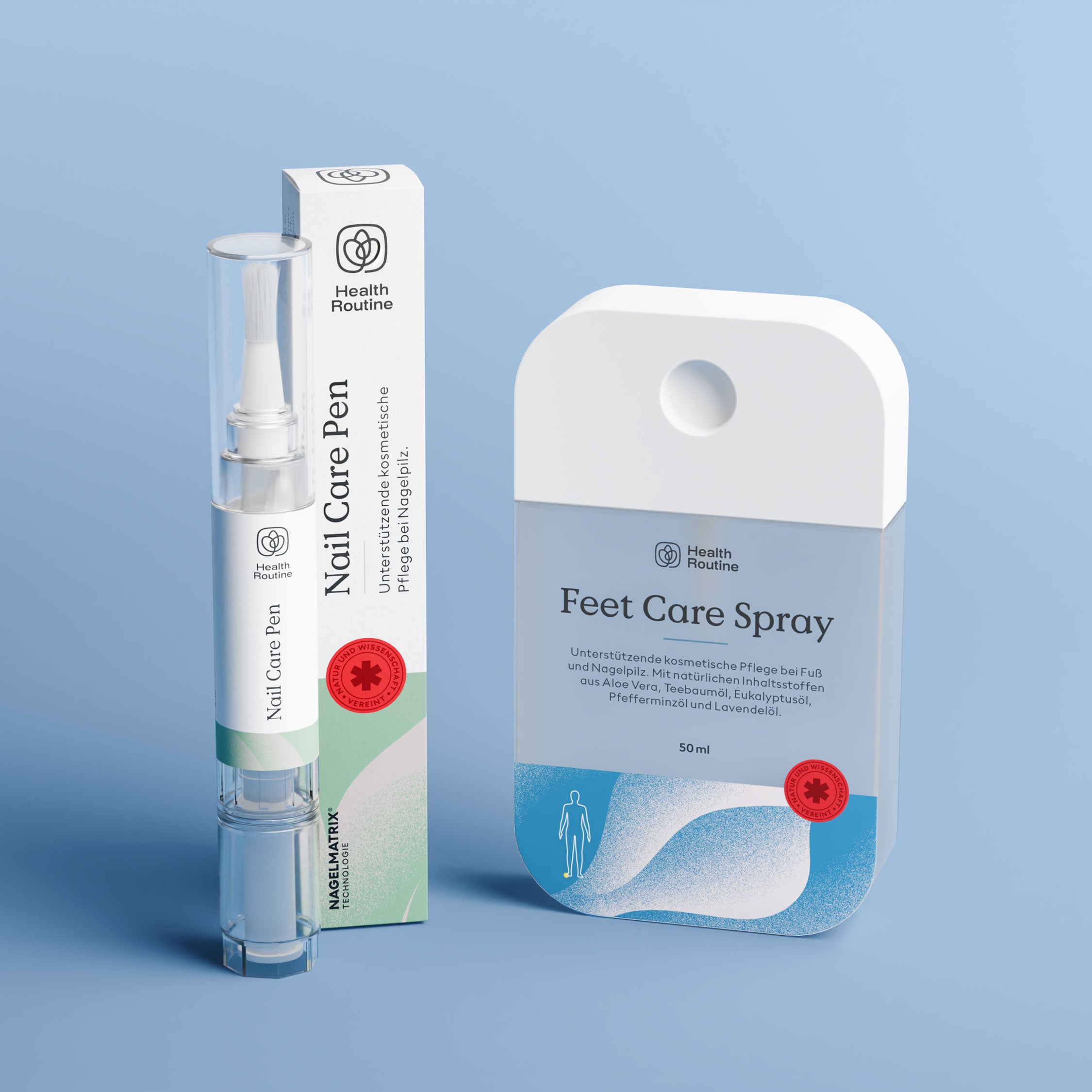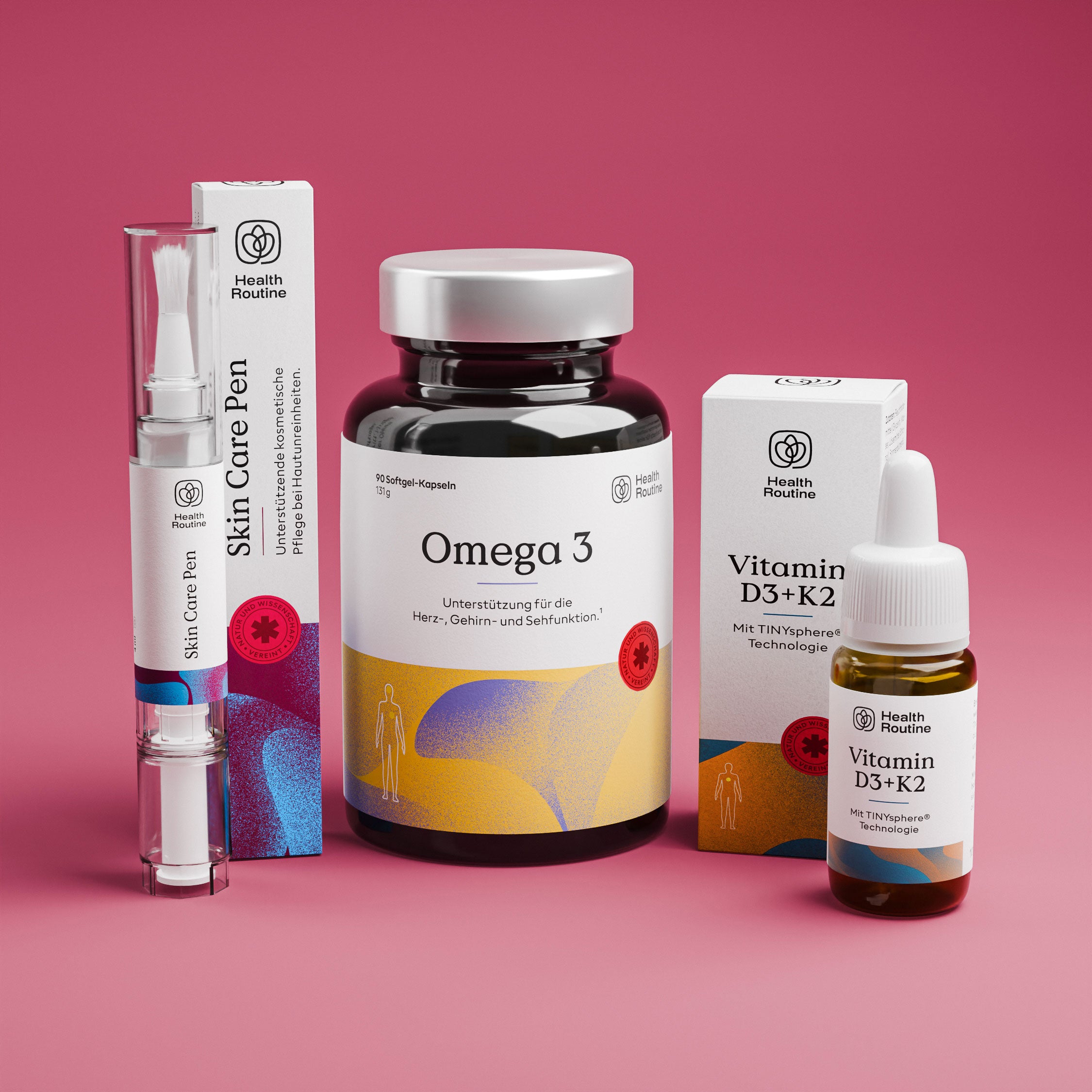Biting your nails is more than just a bad habit. It can seriously affect the well-groomed appearance of your hands and can be particularly embarrassing for adults. But why do people bite their nails? What are the causes and how can you prevent it?
From nervous nail biting in stressful situations to constant chewing for no apparent reason - the phenomenon of nail biting is widespread and can have a variety of causes . This guide is therefore about nail biting in children and adults .
We get to the bottom of the questions surrounding bitten fingernails and offer different solutions and care tips for bitten fingernails.
Why do people bite their fingernails?
Nail biting is a habit that many of us are familiar with and affects people of all ages . It is often more than just a nervous tic and can have various causes . To better understand this behavior , let's look at what might be behind it.
Causes and triggers at a glance
Sometimes it's just boredom, sometimes there's more to it. Here are some reasons why people bite their nails :
-
Stress and anxiety: During stressful times, many people look for small ways to calm themselves down. Biting your nails can seem like a quick fix in such moments. It offers a short-term distraction and a sense of control in uncertain situations.
-
Boredom: Sometimes it's simply boredom that makes us bite our nails. In moments when our hands have nothing to do, biting can be a kind of automatic response to keep ourselves busy.
-
Habit: Some of us bite our nails without really thinking about it. It has become a habit over the years that is hard to break.
-
Emotional problems: Emotional turmoil, unresolved feelings or traumatic experiences can cause people to bite their nails. It serves as a form of self-soothing and distraction from inner conflicts.
- Restrictive environment: Children and adolescents who grow up in an environment where they cannot express their emotions sometimes use nail biting as an outlet. It becomes a silent form of protest or self-expression.
Diseases associated with this symptom
While nail biting is often dismissed as a harmless habit, in some cases it can be a symptom of more serious health problems. It is important to recognise these possible connections and seek medical advice if necessary.
✘ Mental disorders: Constant nail biting can be a symptom of deeper psychological problems. It can be a sign of anxiety disorders or obsessive compulsive disorders, in which repetitive behaviors serve as a coping mechanism.
✘ Paronychia: Constantly biting and damaging the nail bed can lead to paronychia, a bacterial or viral infection. This infection can be painful, cause swelling and, in the worst case, lead to further complications.
✘ Warts: Chewing can cause small wounds that are entry points for viruses. These viruses can cause warts, which are not only uncomfortable but also contagious.
✘ Nail fungus: The constant moistening of the nail bed by saliva creates an ideal environment for fungi. Nail fungus can cause the nail to become discolored, thickened and brittle. It is important to treat such infections early to avoid further complications.
If you notice changes in your nails and suspect that nail fungus may be the cause, it is worth taking a look at our guide on the topic: Treating nail fungus: symptoms, remedies and tips
Stop nail biting: Helpful methods at a glance
Nail biting, also called onychophagia, is a common habit that often begins in childhood and can continue into adulthood.

Here are some strategies that can help stop nail biting:
Step 1: Be aware of nail biting
Before you try to stop nail biting, it is important to become aware of the habit. Ask yourself:
- In which situations do I bite my nails most often?
- Are there certain triggers that cause chewing?
- How do I feel when I bite my nails?
- What emotions or thoughts precede chewing?
Step 2: Investigate causes & cope
Nail biting is often associated with psychological stress and serves as a mechanism for tension relief . It can also be a side effect of mental illnesses such as anxiety or obsessive compulsive disorders .
It is important to identify the underlying causes and find appropriate coping strategies , for example through appropriate stress management .
Step 3: Find alternative behaviors
Instead of nail biting , you can try finding alternative behaviors . A reward system can help encourage positive behaviors and reduce chewing .
Here are some examples of a reward system:
✔ Set daily goals: For every day that you don't bite your nails, you can put a star or a sticker on a calendar. After a certain number of consecutive "chew-free" days, give yourself a small reward.
✔ Weekly rewards: If you manage to get through a whole week without biting your nails, you can treat yourself to something you've been wanting for a long time, be it a new book, a trip to the movies or a special meal.
✔ Monthly goals: For a month without nail biting, you can set a bigger reward for yourself, such as a day trip, a new piece of clothing, or a trip to the nail salon to celebrate your nail-free days.
✔ Involve friends and family: Share your goals with your loved ones and ask them to encourage and support you. Maybe they could even help with little surprises or encouragement when you reach your goals.
By setting up a reward system, you will not only encourage positive behavior, but you will also get additional motivation to keep going and leave nail biting behind for good.
Step 4: Care for nails
Careful and conscientious nail care can help reduce biting .
Expert tip: Use bitter nail polish, which reduces the urge to chew due to its unpleasant taste. Bitter nail polish to stop nail biting can be found in drugstores and pharmacies.
Step 5: Be patient
Quitting nail biting is a process that takes time and patience . It's important not to judge yourself too harshly and to celebrate even small successes.
Remember that every setback is just a small stumbling block on the road to recovery and does not mean the end of your efforts.
With time and consistent effort, you will notice that the intervals between chewing bouts become longer.
Step 6: Professional help
If nail biting is linked to underlying psychological issues , it may be helpful to seek professional help . A therapist or psychologist can help you understand the underlying causes of your behavior and provide you with strategies to stop biting.
Expert tip: There's no shame in seeking support, especially if it helps improve your quality of life.
Find alternative behaviors
Finding alternatives to nail biting can be an effective way to overcome this habit . There are several techniques and approaches that can help:
How does reaction reversal work as a self-help technique for nail biting?
Response reversal is a technique in which you replace the undesirable behavior with another behavior that is incompatible with it. For example, instead of biting your nails , you could
- put your hands in your pockets,
- Handicrafts such as knitting and crocheting
- or play with a stress ball.
Self-help & decoupling: How can it help you with nail biting?
Through self-help techniques and consciously decoupling trigger situations from nail biting, you can learn to no longer react automatically to the urge to bite. This can be achieved through distraction or by using alternative behaviors .
For example , wearing a rubber band around the wrist and gently flicking it when the urge to chew arises can help raise awareness of the behavior and interrupt it.
Another method is to paint or draw , which keeps the hands busy and prevents chewing. Keeping a small notebook in which you write down your thoughts or feelings each time the urge arises can also be helpful.
What is the In-Sensu method for nail biting?
The In Sensu method is a type of exposure therapy in which you intensively confront the unwanted behavior in your imagination without actually carrying it out.
Through this mental confrontation with chewing , in a safe and controlled setting, the emotions and reactions associated with it can be better understood and regulated . Over time, this can help reduce the urge to chew and increase awareness of one's own triggers.
How to stop nail biting: Additional expert tips
Breaking the habit of nail biting can be challenging , but with the right strategies and tips, it is doable. Here are some additional tips:
-
Wear gloves: Wearing gloves can prevent direct access to the nails and thus reduce biting. This can be helpful at night, for example, if you unconsciously bite your nails while you sleep.
-
Nail care: Regular manicures, for example with the Health Routine glass file , and applying a nail serum can help keep nails healthy and reduce biting.
-
Distraction: Find activities that keep your hands busy, such as knitting or drawing, to reduce the urge to chew.
-
Stress reduction: Since stress is often a trigger for nail biting, relaxation techniques such as meditation, deep breathing or yoga can help reduce the urge.
- Create awareness: Keep a journal of your chewing habits to identify patterns and develop coping strategies.
Bad habit or mental disorder?
For many people, nail biting is just a bad habit they have picked up over time. However, in some cases, there may be more to constant nail biting.
There is speculation that nail biting may indicate a psychological problem in some cases. Especially when adults exhibit this behavior, in the context of psychology it could indicate deeper emotional or psychological problems .
Biting your nails or cuticles could also be a sign of unresolved psychological issues .
Medical help: options and recommendations
If nail biting goes beyond a simple habit and is associated with emotional or psychological problems, it may be worth seeking medical help.
A doctor or therapist can identify the underlying causes and recommend appropriate treatment strategies . There are several therapeutic approaches that can help overcome nail biting and manage the problems associated with it.
The role of professional therapy
Professional therapy can play a crucial role in managing nail biting . A therapist can offer techniques and strategies to reduce biting and address underlying causes.
In addition, therapy provides a safe space to talk about feelings and emotions that may contribute to nail biting.
How homeopathy and Schuessler salts can help
Homeopathy and Schuessler salts are considered alternative healing methods that are said to help reduce nail biting . While homeopathy is based on the idea that "like cures like", Schuessler salts aim to compensate for mineral deficiencies in the body.
Both of these could be approaches to restore emotional balance and reduce the urge to chew . However, it is important to do your research and consult an expert before using them to ensure that the treatment you choose is suitable.
Support natural nail growth: Our insider tip - the Nail Growth Serum
More than just another nail care product, Health Routine's Nail Growth Serum is a carefully formulated nail oil that aims to give your nails the care and attention they deserve.
This serum , ideal for both fingernails and toenails , is a fusion of the power of nature and scientific knowledge to offer your nails comprehensive and coordinated care.
➽ Citrus oil: A natural ingredient known for its refreshing scent. In the Nail Growth Serum, this oil acts like a door opener, allowing the other ingredients to penetrate deep into the nail. It ensures that the nourishing components of the serum reach the nail root and can take effect there.
➽ Almond oil: This wonderful oil not only moisturizes but can also protect against the harmful effects of UV rays. It nourishes and strengthens the nail from within and can help keep the nails and surrounding skin soft and supple.
➽ Jojoba oil: This oil is similar in composition to the skin's natural oils. It can help nourish nails and condition cuticles. Its moisturizing qualities can also help revitalize dry and brittle nails.
In addition to these oils, the Nail Growth Serum contains:
Vitamin E: An antioxidant often used in skin and nail care products, it can help protect nails from environmental damage and give them a healthy appearance.
Biotin: A B vitamin often associated with hair, skin and nail health. It may help support nail structure.
Olive oil: A traditional oil rich in antioxidants. It supports the nails and protects them from drying out.
Coconut Oil: Another oil known for its moisturizing properties, it can help keep cuticles soft and improve the appearance of nails.
The Nail Growth Serum from Health Routine is not just a treatment , it is a harmonious approach for stronger, healthier and shinier nails .
Thanks to the brush applicator, the Nail Growth Serum is easy to use and can make the difference you want to see and feel in your nails. Give your nails the chance to shine with the power of nature!
Conclusion
Nail biting can be more than just a bad habit; it is often a sign that our body and mind are seeking balance.
However, with the right strategies, patience, appropriate care and an understanding of the underlying causes, well-groomed and healthy nails can be within reach.
Don't let setbacks discourage you and remember that every day is a new opportunity to love and care for your nails.
FAQ
What effects does nail biting have on your nail health?
Regular nail biting can have a number of negative consequences for nail health. Bitten nails can not only look unsightly, but can also increase the risk of infection as the nail bed and cuticle can be damaged.
In addition, chewing can cause cracks and splinters, which further weaken the nail.
How can I stop my child from biting his nails?
Breaking the habit of nail biting in children requires patience and understanding. It is important to identify the causes of the biting, as it is often related to stress or boredom. Communication and creating a supportive environment are key.
Instead of punishing the child, one can use positive reinforcement and rewards for non-chewing days. In stubborn cases, it may be helpful to consult a professional or the family doctor to understand the underlying causes of nail biting in children.
Nail biting: When to see a doctor?
If nail biting leads to repeated inflammation, pain or other noticeable changes in the nails , you should see a doctor. If nail biting is associated with severe emotional stress or anxiety and you feel that you cannot control it on your own, it is advisable to see a doctor or therapist.
Only a medical professional can assess both the physical and psychological aspects of the problem and make appropriate recommendations.
Remember, you are not alone in your nail biting problem and it is nothing to be ashamed of. It is a problem that many people know and understand.
🌿 Discover more guides from Health Routine now:
Your medical notice
Our products are not intended to diagnose, treat, cure, or prevent any disease. The information provided in this article is for informational purposes only and is not intended to be a substitute for advice from your doctor or other healthcare professional.
In addition, our products are not intended to be a substitute for medication or other treatment prescribed by your doctor or health care provider. Regardless of the duty of care applied, no liability or warranty is assumed for the
- Accuracy,
- topicality,
- completeness
- and availability of the information provided.
No legal claims can be made for damages potentially resulting from the use of the corresponding information. Liability claims of any kind are excluded.
